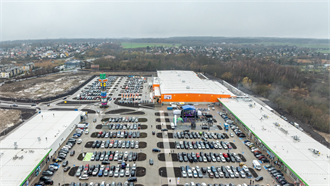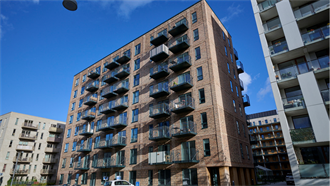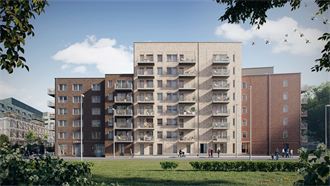The current market uncertainty has not dented demand for sustainable buildings, but new challenges loom on the labour and energy front, according to ESG-focused consultancy firm Drees & Sommer.
Steffen Szeidl, CEO of Stuttgart-based Drees & Sommer which specializes in ESG, sees a number of sides to ‘all the crises we’re in’. On the one hand, business is going well and demand for ESG services is holding up, but rising energy costs and other challenges are hampering progress with climate change initiatives.
‘We are doing well and demand has been holding up,’ Szeidl told PropertyEU at Expo Real. ‘We are actually helped by the energy crisis, but there is a lot of uncertainty in the market.’
Szeidl explained that German developers are having problems because of interest rates going up - on top of the issues they were grappling with already. Although insolvencies went down during the pandemic, the market situation is now catching up with them, he said.
A particular bottleneck for developers is the German subsidy programme for energy-efficient construction. The number of subsidy applications for 2022 was so high that the funds ran out as early as January. The whole programme is now under review and there is discussion about how to allocate funds to projects ranging from energy-efficient to climate-neutral schemes. ‘In many cases this is about 1 to 3 percent of project costs,’ Szeidl noted, ‘which can just make the difference’.
Szeidl, who has been on the board of Drees & Sommer since 2015 and became CEO in 2020, sees the climate crisis as the number one priority the world has to deal with. High energy prices are forcing companies to deal not only with those costs directly, but also with their entire supply chains.
Said Szeidl: ‘We have seen a shift to Asia, to countries like China and Vietnam, but now there is a move back to countries in Central Europe and even Spain and Portugal.’
According to the CEO, the automotive industry has important lessons for other sectors in terms of how supply chains work. He highlights BMW as an example: the German car manufacturer moved production to Hungary and made sure that suppliers and other subcontractors were close by. This shift to shorten supply chains started during Covid, said Szeidl, but rising energy costs make it even more urgent.
Szeidl sees ESG as a priority at ‘almost’ every level in the private and public sector. But going forward there is another problem looming: shortage of trained personnel.
He noted: ‘The EU Taxonomy aims to encourage the refurbishment of homes and buildings at an ambitious rate, but where do we find the workers?’
Drees & Sommer, too, has had to deal with this issue and focuses attention and resources on staff retention. Said Szeidl: ‘We try to find new people and keep them happy. At the same time we are developing better technology.’
Despite all these challenges, Szeidl is not concerned about the future of Drees & Sommer. Uncertainty forces companies to make the right decisions, he said. ‘A normal cycle makes people complacent. In times of difficulties we have to come up with solutions. We have to overcome them and go on to the next cycle.’


































